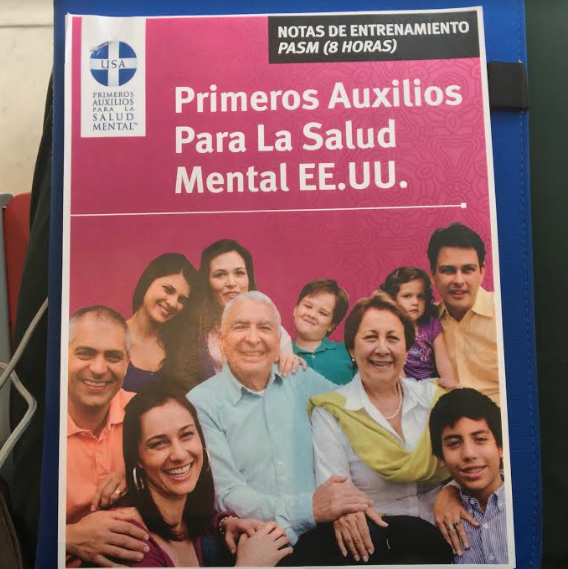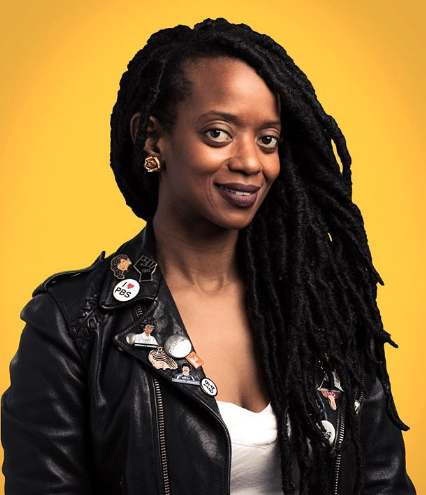It took 18 years, a withdrawal from college, and a nervous breakdown before I got diagnosed with ADHD (Attention-Deficit/Hyperactivity Disorder). I wish I could say that I was the only person this ever happened to, but it isn’t uncommon. ADHD is one of the most highly debated disorders. The symptoms and the medication to control them, come up frequently in conversation. As a Black woman, I am used to the challenges of being on the outskirts of what society has pegged as normal behavior. What I find frustrating, confusing, and disheartening is the ostracizing I have received within my own community for being mentally ill and unwilling to be quiet about it.
Every day I wake up afraid, worried about forgetting something, and if I’m going to make it to work and appointments on time. Growing up, I was always late for things, my room and locker were a mess, and I struggled to concentrate long enough to finish projects and turn in homework. All the while, internalizing that I was incorrigible, lazy, and irresponsible. It was tough growing up a messy, disorganized little Black girl because respectability politics play into this on some level. If you’re not super neat and tidy, you’re shamed and considered trifling. If you’re not a star student, you’re constantly reminded that we must work twice as hard to get half the recognition. However, when it comes to addressing the challenges that we are facing as a community, we still fall short.
For many of us, our first experience with ADHD comes in a doctor’s office as an adult, relieved to finally learn why we are so different. Having learned the reason, that’s when we go back to our families to tell them “look, I wasn’t lazy, trifling, or irresponsible. I just had ADHD.” This is usually where the shaming starts again. Our families will even go as far as to say that we are making excuses and just looking for a pill to solve our problems. This often leads to us withdrawing and not mentioning it anymore.
To give some insight as to exactly what ADHD is, it’s a neurological disorder that affects every area of your life, especially your executive function. Wondering what the hell executive function is? According to Harvard University, “executive function and self-regulation skills are the mental processes that enable us to plan, focus attention, remember instructions, and juggle multiple tasks successfully. Just as an air traffic control system at a busy airport safely manages the arrivals and departures of many aircraft on multiple runways, the brain needs this skill set to filter distractions, prioritize tasks, set and achieve goals, and control impulses.” In other words, everything you need to be a responsible, working, and functioning member of society is affected by this disorder. Anything from cleaning your house to finishing a work assignment can quickly become complicated.
Unfortunately, this is something a lot of Black people are not trying to discuss. This can be due to the medical community’s erasure and experimentation, as well as the eagerness to suggest medication for our children to deal with the disorder. A lot of our people won’t entertain the idea that their child might have it, let alone that it’s even a real thing. The facts we need to face are that Black people do have ADHD, some of us take medication for it, and these hurtful, dismissive debates within our community aren’t going to change these facts.
When you struggle with an invisible disorder, the last thing that you need is your family and friends invalidating your experience. Just like depression, anxiety, and PTSD, people with ADHD need support, understanding, and kindness. We stay on the fringes of true acceptance and improving our mental health when closed mindedness erases and hurts those in plain sight.
When I got tired of looking for support from family members who tried to understand but couldn’t relate, I took to the internet. The crazy part was that I couldn’t find any blogs, groups, or spaces for Black women to talk about their experiences with ADHD. What I did see was our women in groups with White women, being gaslit, demonized, and dismissed. I saw women too embarrassed to admit the chaos in their life that resulted from ADHD and how lonely they felt, myself included. It was from this need to relate that Black Girl, Lost Keys was born. The takeaway from my struggle and the women I meet with on a regular basis is this: we as Black people need to embrace our family members, friends, and associates who are struggling and too ashamed to discuss what they’re experiencing. We have the facts and know the consequences of untreated mental health. It is time for us to take that knowledge and use it to finally heal our communities because we can’t wait any longer.
For additional resources to help yourself and others with ADHD, please visit the following sites:
ADDitude – an online portal to learn more about ADHD and the people who live with it
Black Girl, Lost Keys – a community where Black women can learn and manage their ADHD
Understood – a place for parents with children dealing with learning and attention issues
René is a passionate advocate for women with ADHD and the Mental Health Community. She is the founder of Black Girl, Lost Keys, a lifestyle blog that brings attention to the conversation around race, mental health and womanhood. That project has led to features in Healthline, PBS's Roadtrip Nation, ADDitude Magazine, and Kaleidoscope Society. By continuing to bring awareness to the Black community's mental health needs, René hopes that no one will ever feel alone again.
To keep up with what René is doing, she can be found on Facebook, Instagram, and Twitter.






























